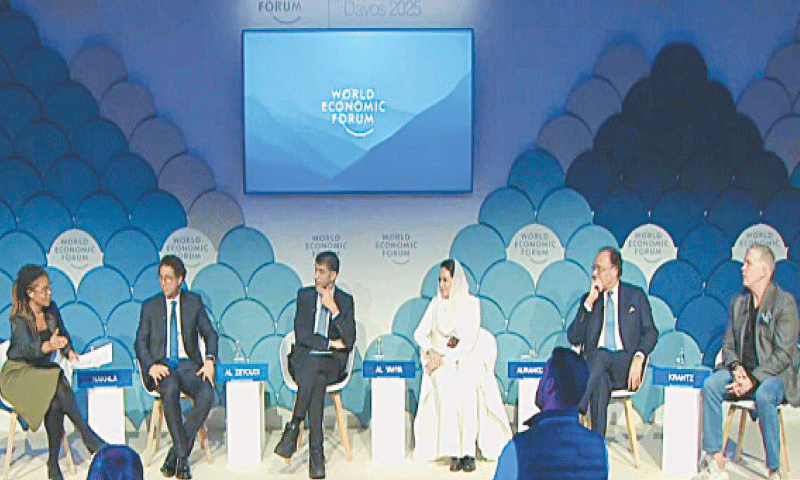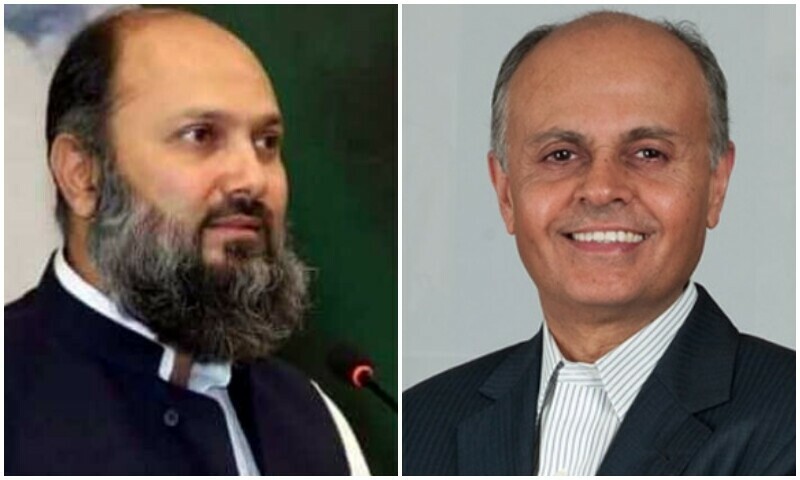Introduction
At the World Economic Forum (WEF) held on January 24, 2025, Minister for Finance, Muhammad Aurangzeb, took center stage to discuss the incredible strides Pakistan has made in the Information Technology (IT) sector. As the third-largest country for freelancers, Pakistan has demonstrated its growing digital economy, and Aurangzeb’s statements at this prestigious event shed light on the nation’s potential in leveraging technology to drive economic growth, trade, and investment.
H1: Pakistan’s IT Sector: A Growing Powerhouse
Pakistan has seen significant vertical progress in its IT sector over the last decade. According to Minister Aurangzeb, this progress is particularly noticeable in the country’s increasing number of freelancers, ranking as the third-largest in the world. This expanding workforce is a testament to Pakistan’s potential as an IT hub in the region. The minister highlighted how digital advancements could contribute to the nation’s economic stability and foster long-term development.
H2: The Role of IT in Pakistan’s Development
Pakistan’s ongoing digital transformation has been a central focus of its growth strategy. The finance minister emphasized that IT is not merely a sector but a core component of the country’s development plans. The nation’s leadership in digital solutions has the potential to position it as a major player in the global economy, particularly in sectors like trade and finance.
H3: The Digital Foreign Direct Investment (FDI) Initiative
Pakistan made headlines as the first country to implement the Digital Foreign Direct Investment Initiative (Digital FDI). This initiative aims to attract foreign investments in the country’s rapidly growing digital economy. The implementation of this program is seen as a vital step toward unlocking the country’s full economic potential. Minister Aurangzeb underscored that this initiative would fuel Pakistan’s growth trajectory, offering benefits across the entire IT ecosystem.
H2: Promoting the Right Ecosystem for Growth
One of the key points that Aurangzeb made during his WEF speech was the government’s commitment to creating an optimal environment for IT businesses. To enable the full potential of this sector, Pakistan must focus on providing world-class infrastructure, reliable bandwidth, banking solutions, and a stable policy framework. This focus on creating a robust IT ecosystem would be central to Pakistan’s rise as a tech powerhouse.
H3: Enhancing Infrastructure and Policy Framework
Pakistan is actively working on enhancing its digital infrastructure to support the growth of the IT sector. By providing seamless connectivity and policy continuity, the country aims to foster a thriving environment for both local and international businesses. Additionally, the establishment of Special Technology Zones (STZs) will further stimulate the sector by offering incentives for IT companies to operate within these zones.
H2: IT Exports: A Record-Breaking Milestone
Another key aspect of Pakistan’s digital transformation is its rapidly growing IT export industry. The country achieved a record high in IT exports, reaching $384 million in December, a notable milestone that reflects its expanding digital market. This growth has helped diversify Pakistan’s traditional export base, paving the way for more global partnerships and collaborations in the future.
H3: The Role of DCO and International Partnerships
Collaboration with the Digital Cooperation Organization (DCO) is set to strengthen Pakistan’s IT sector further. The DCO, a multilateral body focused on enhancing digital trade and connectivity, plays a significant role in connecting Pakistan with the global digital economy. By working with organizations such as VEON and regional partners, Pakistan is positioning itself as a key player in global digital transformation.
H2: Promoting Digital Adoption Across the Country
Minister Aurangzeb also discussed the importance of digital adoption at all levels. He explained that consultations with stakeholders from various sectors are ongoing to promote the benefits of digital infrastructure. This approach not only focuses on expanding the digital economy but also aims to boost digital literacy and foster an environment where citizens and businesses can fully embrace new technologies.
H3: Technology Zones: Boosting Innovation and Employment
Pakistan is setting up special technology zones to further encourage IT innovation. These zones will play a critical role in fostering an environment conducive to digital entrepreneurship, creating job opportunities, and improving overall economic stability. These initiatives will make Pakistan a more attractive destination for both investors and skilled professionals in the IT sector.
H2: Focus on Digital Payments and Economic Documentation
During the WEF discussions, Aurangzeb met with executives from VEON and Jazz, including Kaan Terzioglu and Aamir Ibrahim. The conversation centered around JazzCash’s role in strengthening Pakistan’s digital payments infrastructure. The discussions also focused on improving the documentation of the economy, particularly through fintech services, a crucial step for Pakistan to become a cashless economy.
H3: Expanding Fintech Services and Digital Inclusivity
As part of Pakistan’s digital transformation, expanding fintech services is essential. Through initiatives like JazzCash and other fintech ventures, Pakistan is opening doors to new financial services that make it easier for businesses and consumers to interact digitally. Moreover, increasing digital inclusivity will ensure that underrepresented communities gain access to financial services, driving growth and prosperity for all sectors of society.
H2: Pakistan’s Vision for the Future
Pakistan’s government, led by Finance Minister Aurangzeb, remains committed to achieving long-term economic growth through technology. The focus on IT, digital adoption, and policy continuity is essential in navigating the complexities of a rapidly evolving digital landscape. Minister Aurangzeb is optimistic about Pakistan’s ability to drive sustainable growth and become a leading player in the global digital economy.
FAQs
1. How has Pakistan’s IT sector evolved in recent years?
Pakistan has experienced substantial growth in its IT sector, ranking as the third-largest country for freelancers globally. This sector’s rapid evolution is supported by a growing infrastructure, digital adoption, and the government’s Digital FDI initiative.
2. What is Pakistan’s Digital Foreign Direct Investment Initiative?
The Digital Foreign Direct Investment Initiative aims to attract foreign investments into Pakistan’s digital economy. This initiative is seen as a key step in expanding the country’s IT sector and promoting economic growth through digital channels.
3. What role do Special Technology Zones play in Pakistan’s IT growth?
Special Technology Zones (STZs) are designated areas that offer incentives and a supportive environment for IT businesses. These zones aim to encourage innovation, boost employment, and promote the digital transformation of Pakistan.
4. What is the significance of Pakistan’s record IT exports?
Pakistan’s IT exports reached a record high of $384 million in December 2024. This milestone highlights the country’s growing IT industry and its potential to expand its export base, bringing in more foreign revenue and international partnerships.
5. How is Pakistan promoting digital payments?
Through fintech initiatives like JazzCash, Pakistan is strengthening its digital payments infrastructure. The government is also working on enhancing financial inclusivity and improving the documentation of the economy to make digital transactions more accessible.



